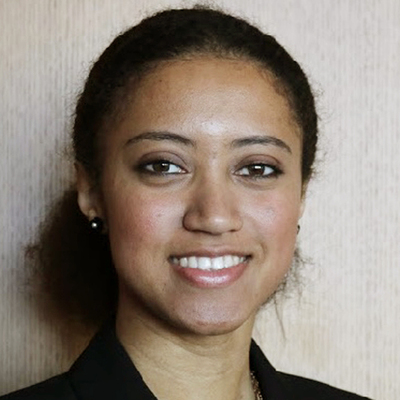Kimani Krienke

Kimani Krienke is a senior majoring in journalism, and works with the Klau Center on our "With Voices True" project.
“Journalism continues to give me opportunities to be vulnerable and true to myself as I help others, and help their experiences to be seen."
What inspired you to pursue journalism?
I came into Notre Dame with a knack for creative writing and the intent to major in English, but I wanted more out of my writing abilities. Knowing papers and readings were bound to take over my life, I decided to start writing for the student-run magazine Scholastic in the August of my freshman year. It was in the midst of interviews, reviews, humor articles, and feature stories that I found I not only love showing my style through words, but I also enjoy being a channel through which smaller voices feel safe being heard. Through various publications, courses, and projects, journalism continues to give me opportunities to be vulnerable and true to myself as I help others, and help their experiences to be seen.
You are deeply involved in the Klau Center's "With Voices True" project. What led you to seek that involvement?
After being a part of the Klau Center's "With Voices True" project in a journalism course in Spring 2021, I wanted to keep the relationship alive within the program or even beyond. Providing content in the form of interviews helped me become a better journalist for my summer internship, and I didn't want this impact to leave with Prof. Richard Jones. This project allows interviewers to put themselves at the forefront to become both better journalists and even better humans.
Can you tell us what working on "With Voices True" is like? Has anything surprised you as you've done the work? What have you learned from the experience?
Working on "With Voices True" has been awe-inspiring. The work is tiring and tedious, especially when getting to the more technical side after getting the interview, but it's even more rewarding. I've found myself diving head first into the tedious work because of the product I know I'll end up with, which is an audio piece of someone's personal experience that will live in the archive forever. What's surprised me the most is how willing people are to share their experiences, especially with race issues. Their willingness has in turn taught me that my own feelings, whether that's in the interview process or editing process, come second to the interviewee's story. Being a channel for small voices will continue to be tiring, but it's something that I continue to crave in all aspects.
How do you imagine the exploration of racial issues fitting into your life after graduation?
I'm planning to obtain a master's degree in magazine journalism after graduation, so I see racial issues still being prevalent in some of the feature stories I imagine myself writing. I typically don't seek out racial issues for every story I write for a publication now, but I believe it needs to be more present in the future. This want is especially present since I want to show people through my words that their individual story is important and deserves to be heard.